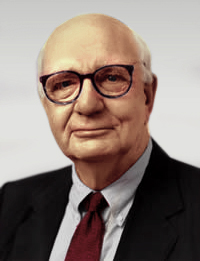A Quote by Janet Yellen
I'm just opposed to a pure inflation-only mandate in which the only thing a central bank cares about is inflation and not employment.
Quote Topics
Related Quotes
For society to function some kind of reasonable balance has to be stuck between the competing interests of creditors and debtors. Although the mandate of the Bank of Canada was to maintain a delicate balance between encouraging growth and fighting inflation, the Bank opted to focus exclusively on fighting inflation. In doing so it came down heavily in favour of those with financial assets to protect, and against those whose primary need was employment.
So: if the chronic inflation undergone by Americans, and in almost every other country, is caused by the continuing creation of new money, and if in each country its governmental "Central Bank" (in the United States, the Federal Reserve) is the sole monopoly source and creator of all money, who then is responsible for the blight of inflation? Who except the very institution that is solely empowered to create money, that is, the Fed (and the Bank of England, and the Bank of Italy, and other central banks) itself?
There is no such thing as agflation. Rising commodity prices, or increases in any prices, do not cause inflation. Inflation is what causes prices to rise. Of course, in market economies, prices for individual goods and services rise and fall based on changes in supply and demand, but it is only through inflation that prices rise in aggregate.




























